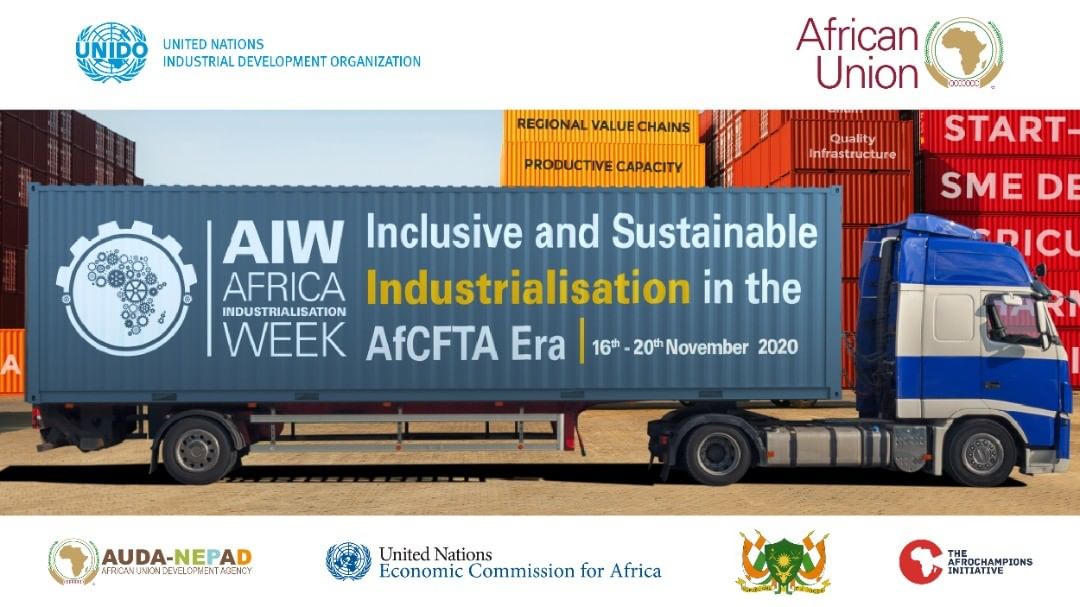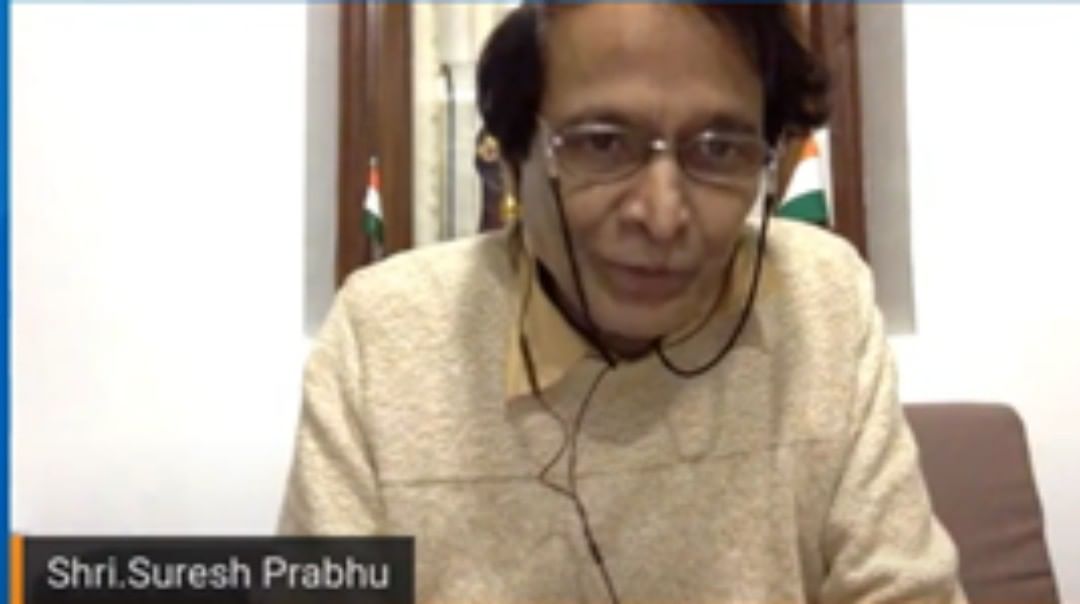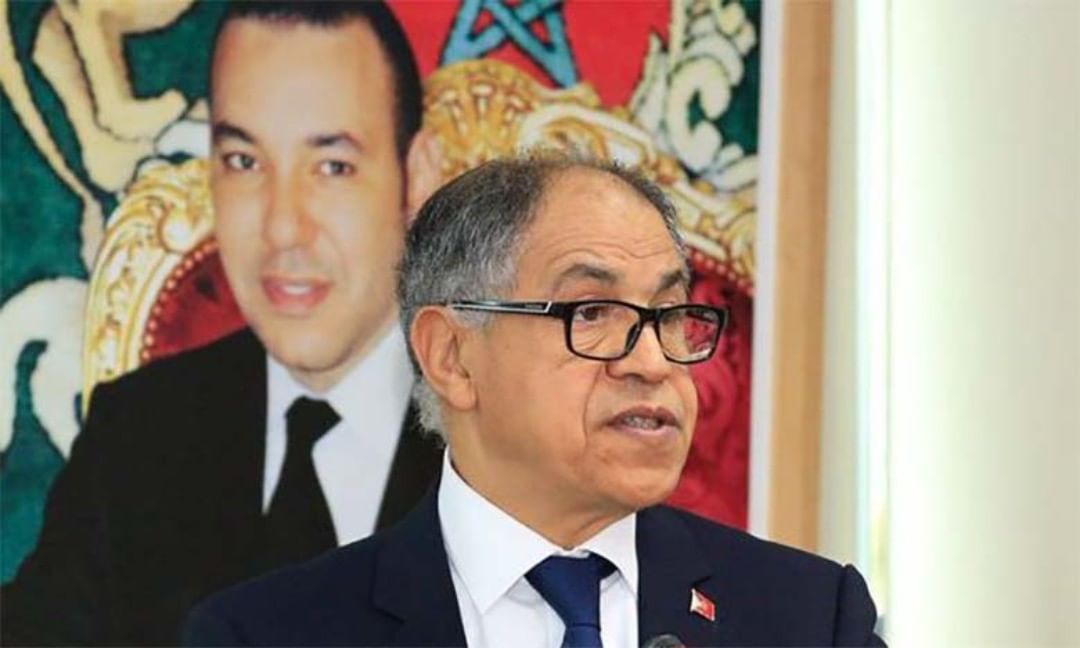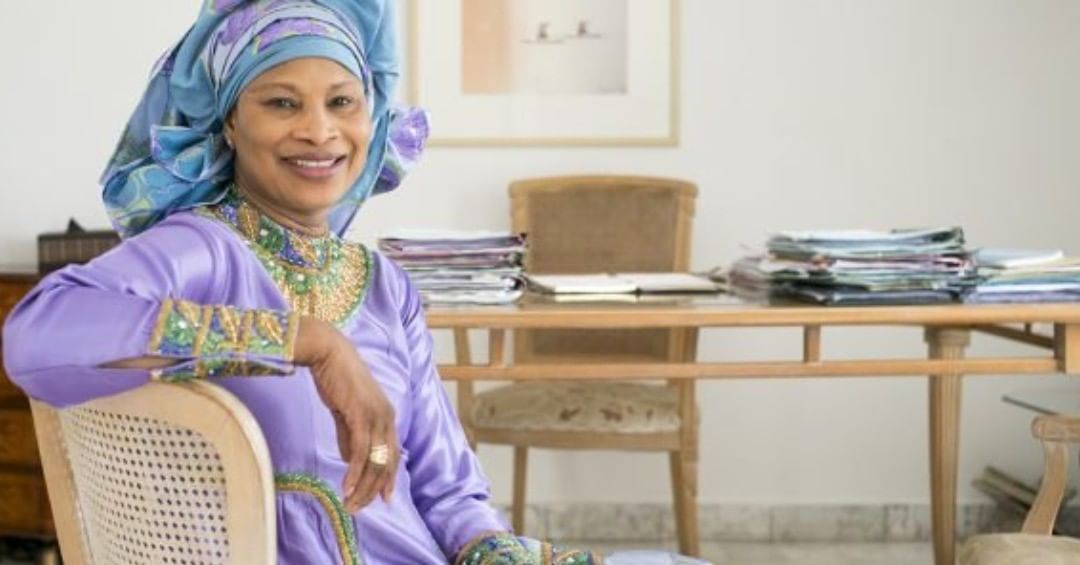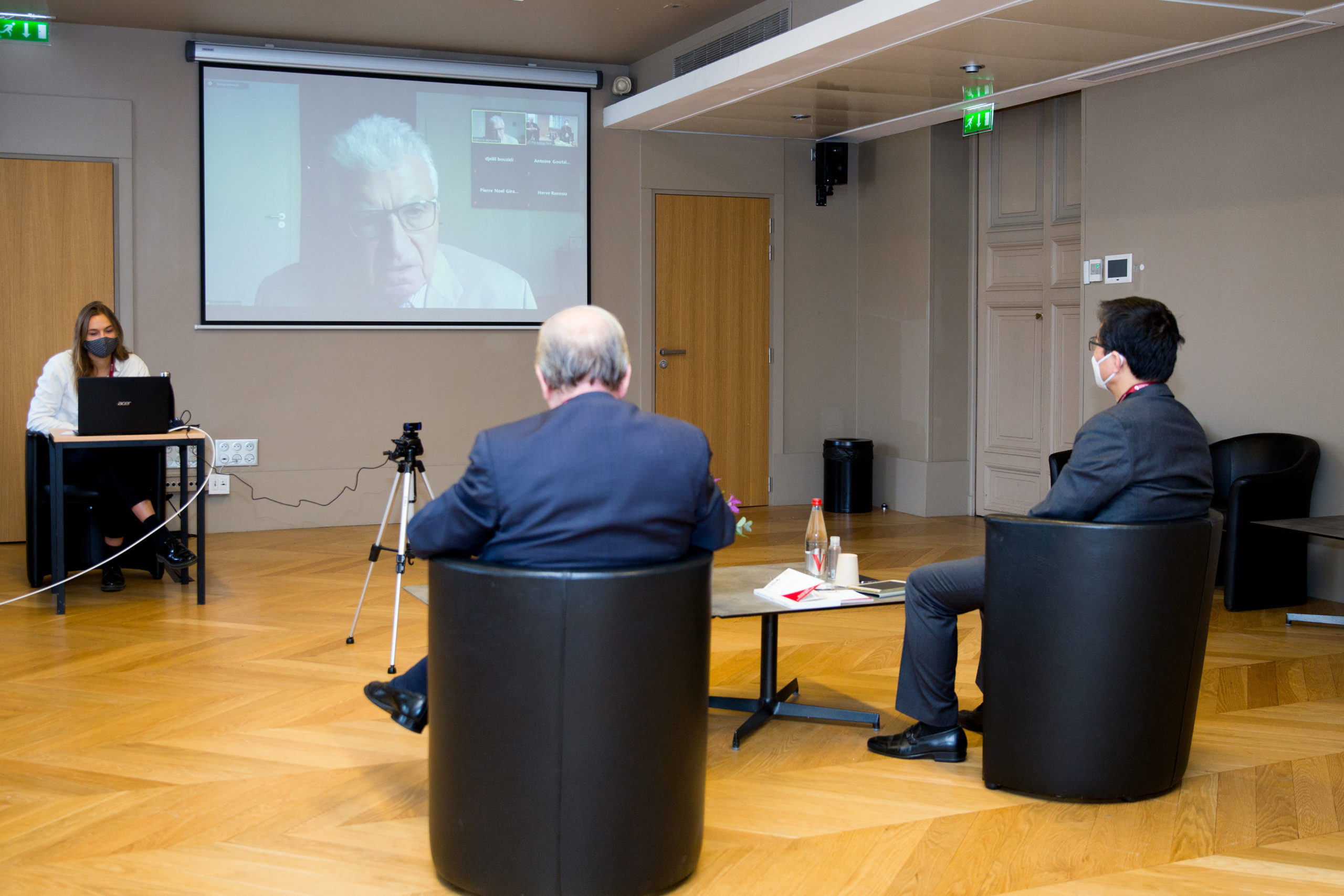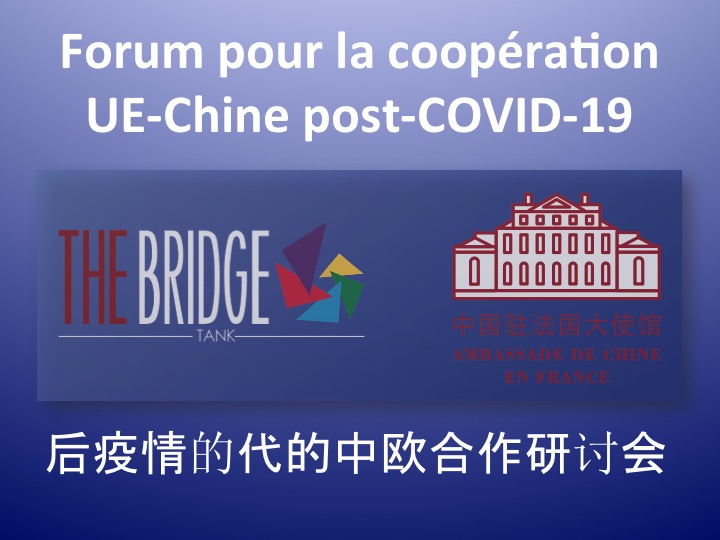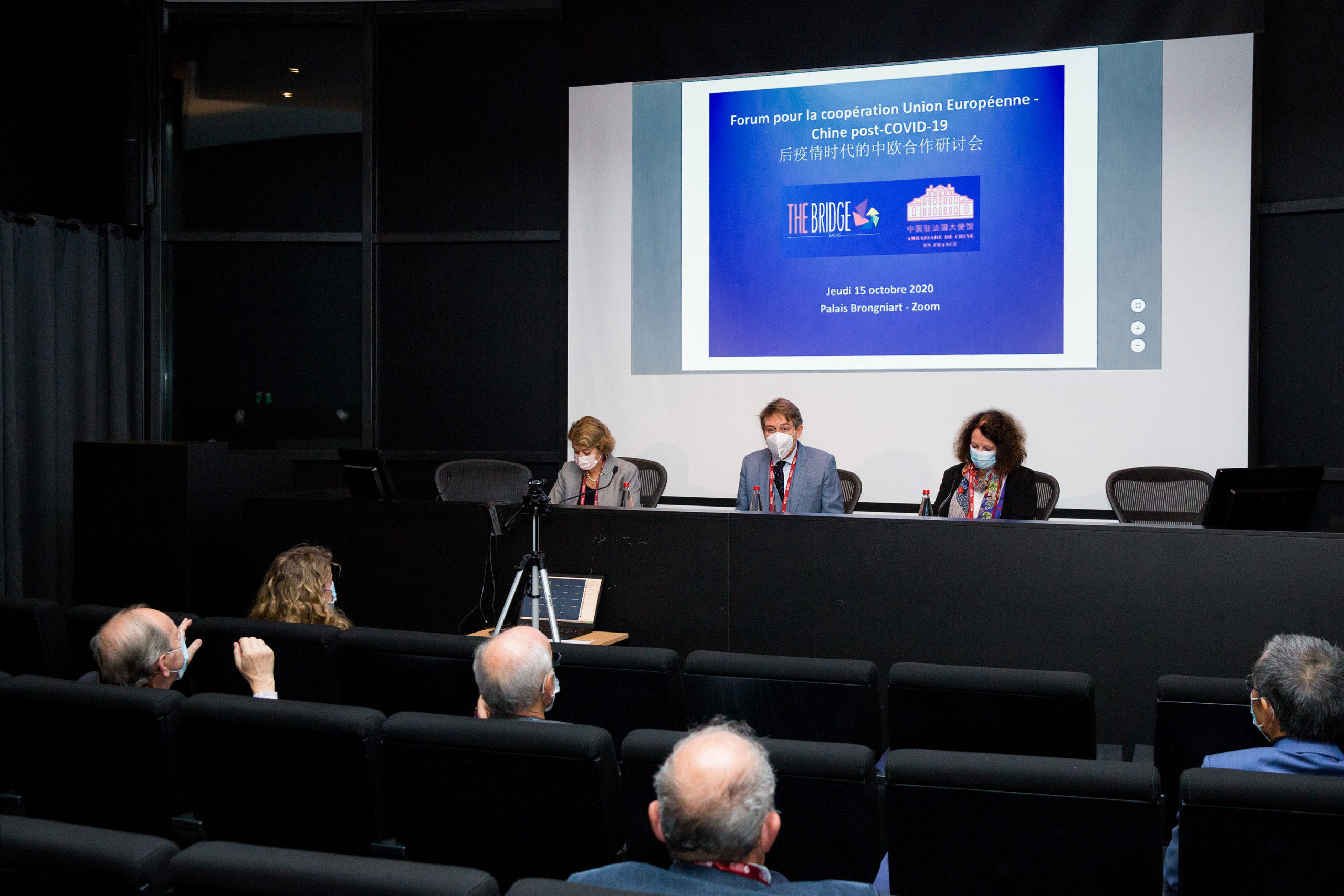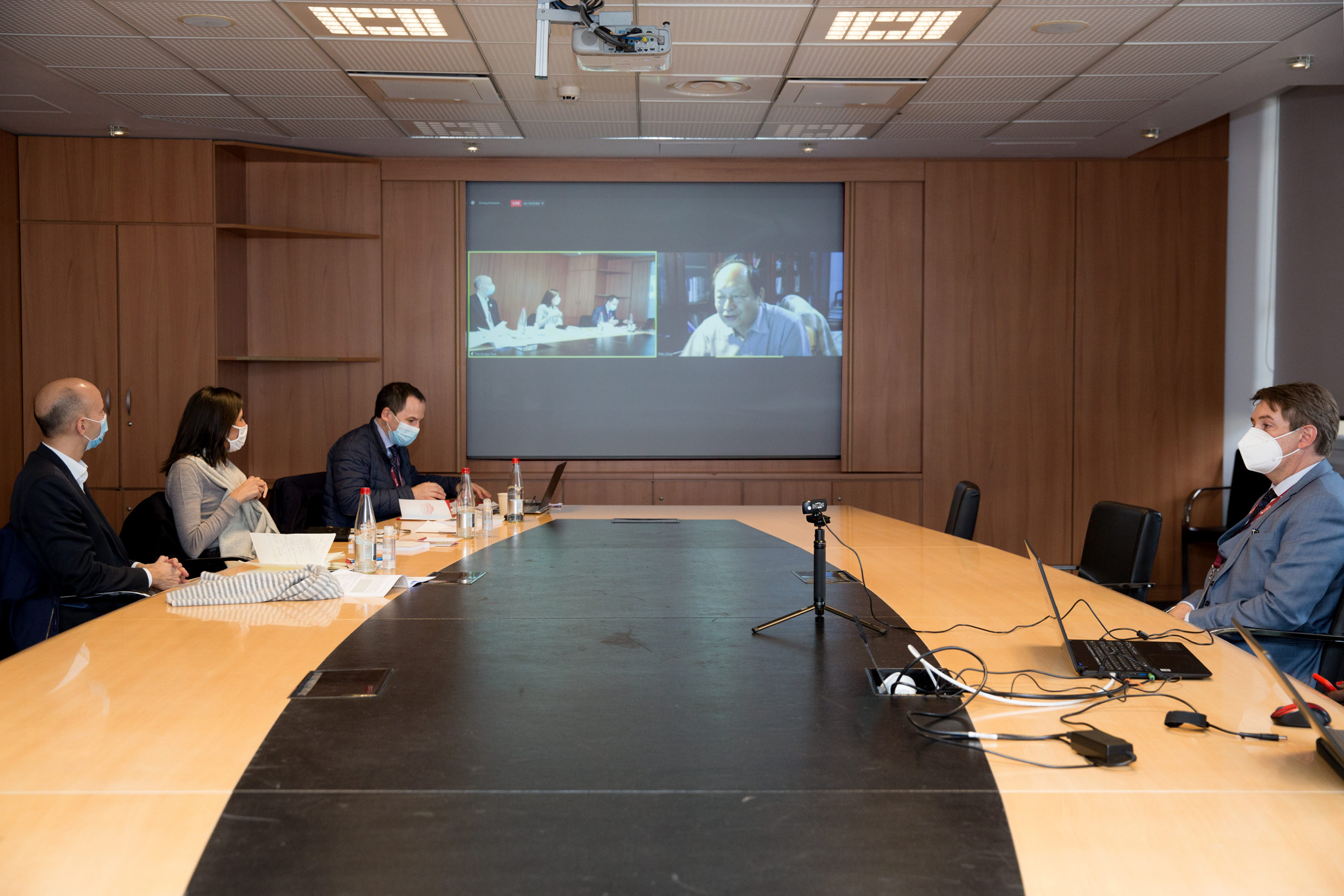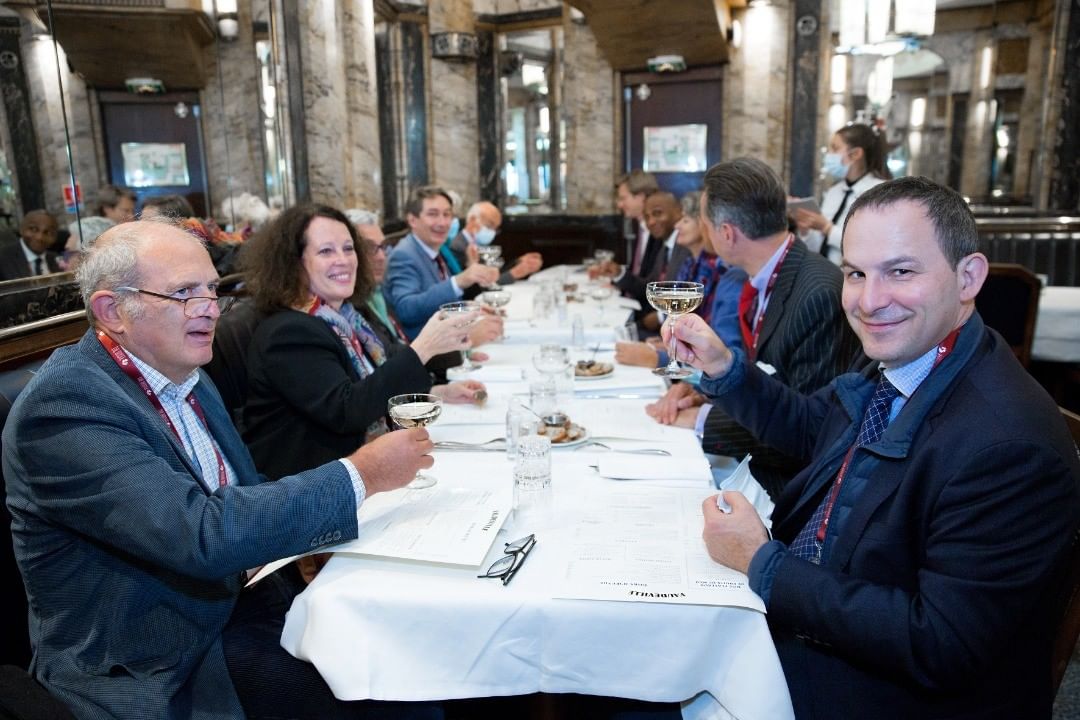Conference: being a social democrat in Africa
Martin Ziguélé, former Prime Minister of the Central African Republic, took part in the Bridge Tank’s conversation about being social democrat in Africa. He discussed with Joël Ruet and Stéphane Gompertz, former French Ambassador to Austria and Ethiopia and Africa Director at the Quai d’Orsay, about various subjects, including social justice, public finances, COVID-19 and Russia. Martin Ziguélé highlighted his political and financial experiences and how these would be an advantage to run for the presidency. He also underlined how important the fight against corruption was to him. He also mentioned the need for his country to develop and invest in education, especially after higher education, as well as secure the possession of fire weapons. Martin Ziguélé also called for more communication between African states, so that the voices of smaller or less economically developed countries can still be heard. He eventually called for the respect of the rule limiting the number of presidential mandates in other African states. This talk took place on the 17th of November 2020.
Suresh Prabhu speaks at the conference “Water and sanitation for all: the fight against pandemics”
Suresh Prabhu, member of the Bridge Tank’s board, took part in the online conference “Water and Sanitation for All: The Fight Against Pandemics”, hosted online by the global social movement One Shared World, on the 12th of November 2020. On this occasion, he addressed over half a million people and confirmed India’s support to ensure clean drinking water, basic sanitation and hygiene across the world. He committed to representing “poor people who have no voice, and so they can’t be heard” and to fight for water and sanitation for all.
Among the other keynote speakers were Shah Chowdhury, co-founder and President of Footsteps Bangladesh and winner of the 2020 AFS Prize for Young Global Citizens, and Jack Slim, Founder of the World Toilet Organisation and the World Toilet Day initiative.
Driss Guerraoui Re-elected for a 4th term on the International Council for Social Protection
Driss Guerraoui, member of the Bridge Tank’s board, was re-elected for a fourth mandate as member of the Administration Council and president of the Middle East and Northern Africa Region of the International Council on Social Welfare. This re-election took place on the 8th of November 2020.
Senegal: our Board Member Aïssata Tall Sall is the 1st woman to become Minister of Foreign Affairs
Aïssata Tall Sall, member of the Bridge Tank’s board, became Senegal’s Minister of Foreign Affairs on the 1st of November 2020. She is the first woman to occupy this position in Senegalese history, and immediately explained that among her priorities were the continuation of the census of Senegalese outside of the national territory and the reinforcement of structures financing the diaspora’s activities.
The Bridge Tank organises a panel on greening investment in the EU and China & challenges of the Belt & Road Initiative
The news on sustainable development is dominated by the initiative announced at the 75th anniversary of the UN by Xi Jinping to be carbon neutral by 2060. The AIIB has decided to stop financing coal. The Chinese government aims to pass the carbon emission peak before 2030 but 80% of primary energy in China is carbon-based, representing 27% of global GHG emissions. In light of these recent developments, Edmond Alphandéry, Pierre-Noël Giraud, Song Luzheng and Djellil Bouzidi discussed the economic instruments of a possible EU-China cooperation in this field in a panel chaired by our board member Philippe Coste.
Philippe Coste recalled that for the time being, many coal-fired power plant projects are being built in China. However, the combination of China’s desire to pass the carbon emission peak before 2030 and the launch by Europe of its green plan in connection with the recovery plan provides a very good basis for cooperation, provided that the ways of effectively exploiting it are identified.
Edmond Alphandéry pushed for a carbon price tool. In Europe, a coalition of finance ministers has been set up in this direction: it is a market-based, decentralised solution that encourages the production of non-carbon energies. In Europe, 45% of emissions are subject to the ETS market. This mechanism retains the problem of volatility. To maintain its power as a price signal, the price of emission allowances must be predictable and stable over the long term, and Edmond Alphandery has set up a task force to convince the European authorities to target carbon prices rather than emission volumes.
China is absolutely key in the fight against climate change. It has realised this and set up a carbon market. Within the International Finance Forum, we are leading a joint initiative between leading Chinese and European figures towards a common strategy for a convergent carbon price. The idea is spreading in China.
Pierre-Noël Giraud also insists on the role of politics and civil society, arguing that banks have no interest in getting involved because of the liquidity of financial markets. The failure of green bonds is also obvious as they only yield 8 basis points.
Djellil Bouzidi fully shares this view on green bonds. Zero and negative rates are the enemy. The investment costs do not vary and the energy intensity of companies issuing green bonds is generally worse afterwards. The state is very important, the fight against GHG emissions is a state affair! Government bonds indexed to environmental performance (GHG emissions, deforestation, composite indices) would force governments to meet their commitments, creating a new asset class: sustainability-linked bonds. Private accounting is another lever for private companies at two levels.
The debate mentioned the role of Africa: Tomorrow the major emitters will be South Asia and Africa. By 2050, China will be back to 1 billion inhabitants as will the West. Africa will have 2.4 billion inhabitants and South Asia 2.5 billion. In South Asia, and even less so in Africa, there will not be strong enough states to drive investment. A tripartite partnership in Africa must be set up to make up for the shortcomings of the states. The Chinese and the West could come to an agreement. Africa must become a laboratory for green energy! Investments in Africa should be entirely decarbonised even if, in practice, this adds difficulties. China, in the framework of BIS, could put a price on carbon in its overseas investments, encouraging its partners to do the same. The financial partners – the banks – have clients who have already pushed them out of inaction. For the proposed instruments: the market structure of finance neutralises the power of these instruments.
Download the minutes of the debate in french: Greening Investment Session
EU-China Post-Covid-19 Cooperation Forum sessions – 后疫情时代的中欧合作研讨会
The first part of our Forum, co-organised by The Bridge Tank and the Chinese Embassy, brought together 4 former ministers, 5 former ambassadors and a total of 30 experts on 15 October at the Palais Brongniart in Paris, as well as 150 registrants from 3 continents and more than 15 cities, for informed and precise exchanges on economic, industrial, social and cultural issues concerning the EU-China relationship.
Download the programme (in French) here
It was opened by Joël Ruet, Irina Bokova, board member of The Bridge Tank who clarified the expectations for the 6 panels of the Hybrid Forum, and by Ambassador Sylvie Bermann who gave her views and suggestions on the issues to be discussed between the EU and China.
These exchanges will be followed by free contributions via an open online Forum, whose recommendations will provide the material for a “white paper” which will be presented by The Bridge Tank at a restitution conference in the presence of the Chinese Ambassador to France and French and European public figures.
Our work dealt with diplomatic issues, culture, human exchanges, economics and industry, focusing on common challenges between the European Union and China: energy transitions, economic transitions – in particular the advent of new industrial models, global public goods. About 80% of the experts were French or European and 20% Chinese, all independent practitioners.
This forum takes place at an important moment when the European Union and China have started negotiations towards an investment agreement.
The reports of the sessions are available below, after the photo gallery.
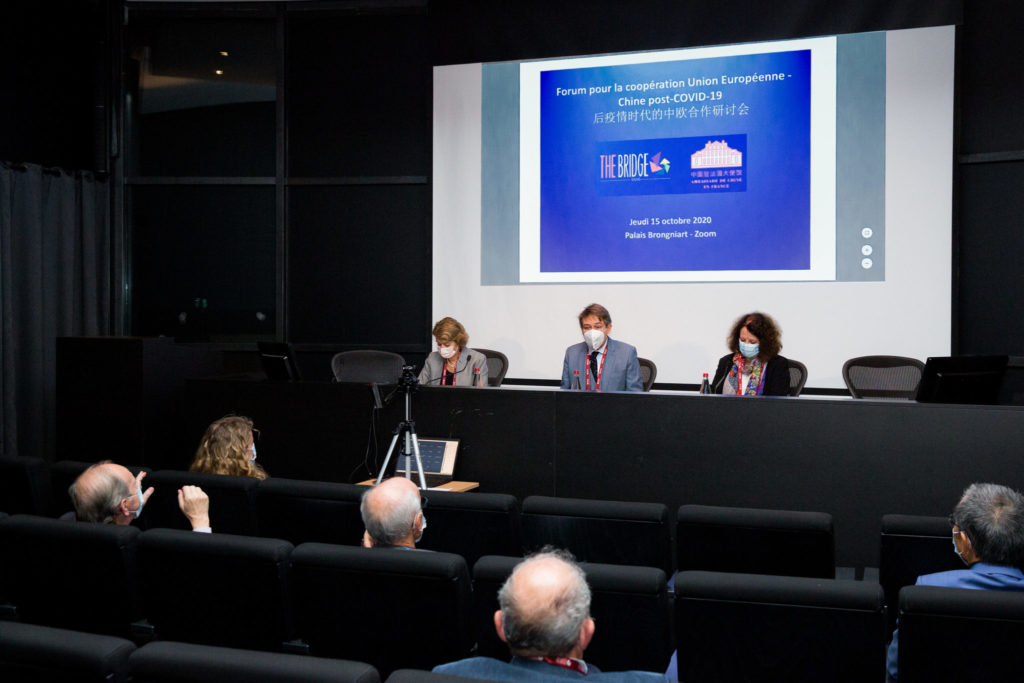
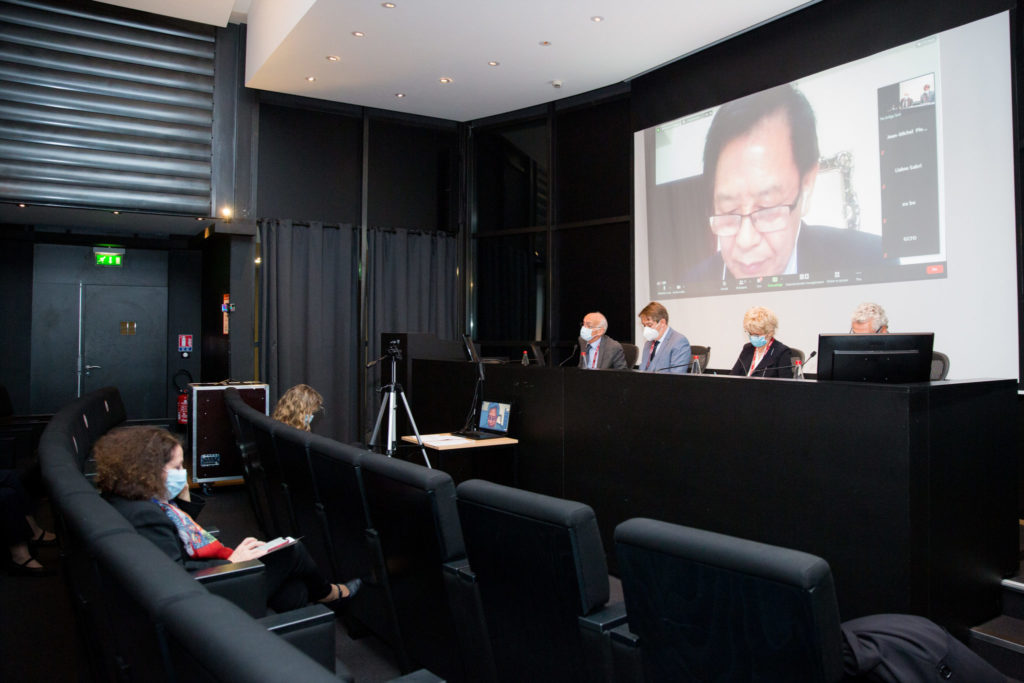
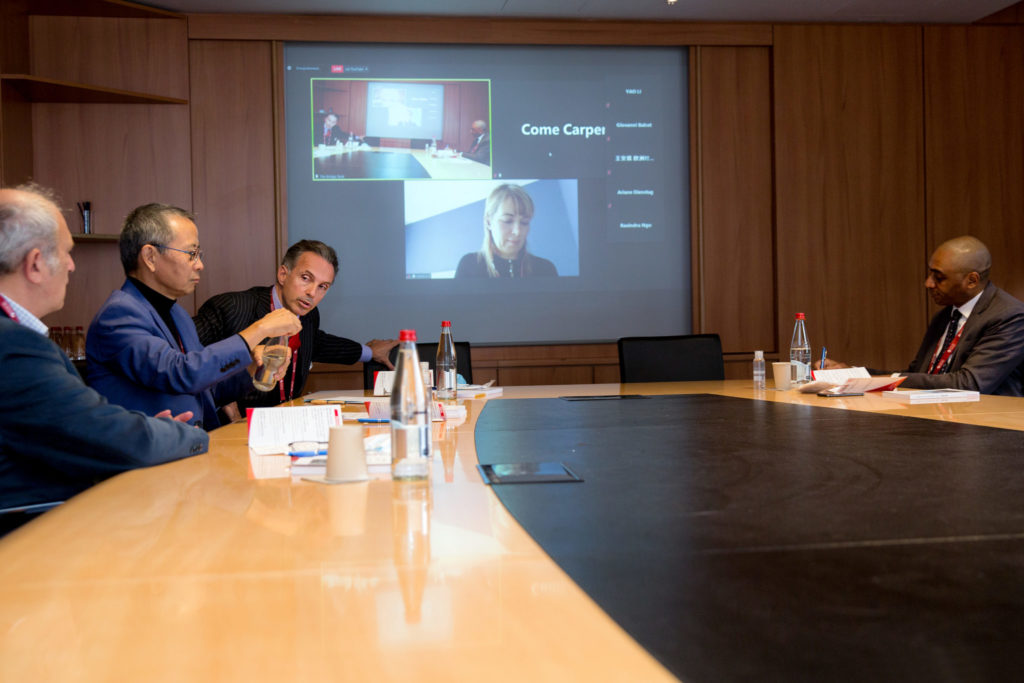
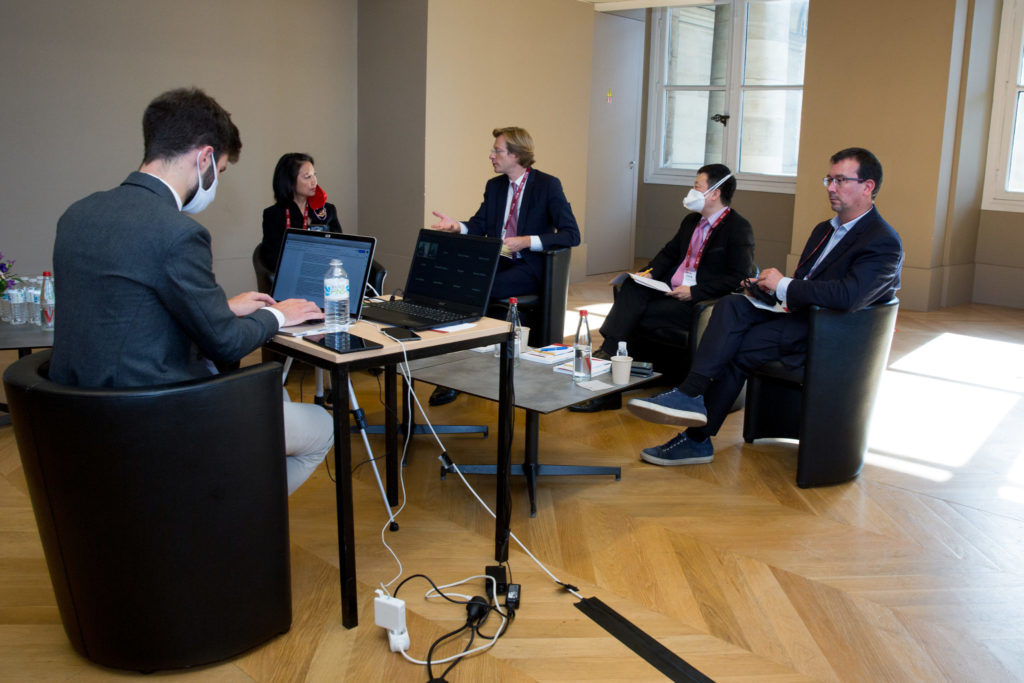
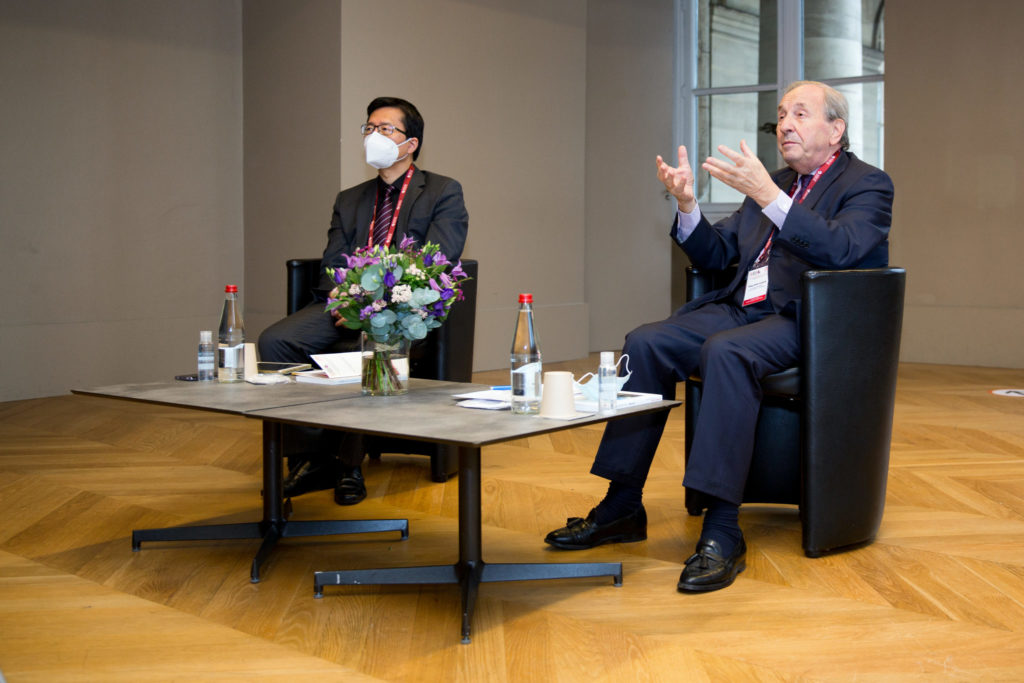



EU-China Post-Covid-19 Cooperation Forum – Introductory Session
Forum co-organised by The Bridge Tank and the Chinese Embassy in France
The introductory exchanges between Irina Bokova and Sylvie Bermann, former French Ambassador to China, reminded us of the importance of anchoring economic and environmental cooperation in the Sustainable Development Goals, which include the human dimension, and of starting from the concrete in order to arrive at renewed concreteness and make proposals in this direction. The concept of Europe as a “balancing power” proposed by Sylvie Bermann is a common thread in our work.
Balanced power also refers to vision and strategic projection and this concept will be questioned very quickly with the American election, depending on who wins. Combining power and balance is a rather Chinese concept, quite dialectic, will it allow us to avoid falling into the trap of Thucydides? The agenda is moving forward, evolving, and this forum intends to make a modest contribution to the debate.
Irina Bokova, as a board member of The Bridge Tank and former Director-General of UNESCO, wants to give a more ‘UN’ dimension to the debates, to reflect on multilateralism, globalism and the climate. It is a question of rebuilding a fairer, more inclusive and more multilateral world after the crisis of covid. China and the European Union are very important actors in these debates on multilateralism and the United Nations in general. There is currently a refocusing going on in these areas. The European Union’s ambition in this refocusing process is to position itself and find its place in a fully changing world. Seen from the rest of the world, the role of these two powers and their dialogue is extremely important.
The pandemic has shown the interdependence of the world today and the need for cooperation for a more human globalisation, closer to the people – this is also the expectation of European citizens. We must deepen cooperation and continue to reflect on the place of Europe and China, rather than entering into a new geopolitics. It is important to take into account the human and cultural side, not just investments, which allows for rapprochement in the economic, political and security fields.
Sylvie Bermann agreed that it was important to have places where people could express themselves freely and make concrete proposals. This requires an anchoring beyond inter-state relations, which have become a bit frozen and tense with the health crisis. The covid crisis is more a revelation and accelerator of underlying trends than a real renewal. We need to rebuild, but not from scratch: there are geopolitical balances that must be taken into account. The major world powers (US, EU, China) are very different. France is always at the forefront in this area, and President Macron had already formulated elements concerning the autonomy of the EU in his Sorbonne speech. This strategic autonomy is interpreted in different ways. There is European defence and security (not depending on NATO and the US, which tend to turn towards the Pacific and China), but also the question of economic and financial autonomy, hence Europe’s opposition to extraterritorial sanctions: it is not acceptable for another country to dictate what the EU can do or with whom it trades.
Ms Bermann also spoke about the euro, investment, climate, health, education and science.
Joël Ruet closed the introductory session and opened the work of the panels by recalling that the relations between the EU and China also concern the blocks and countries that want to count and have the means to do so (Latin America, Africa for some time now with the 2063 agenda, which outlines the paths of emergence planned for a 40-year horizon).
Download the summary of the debates (in French) here
Download the verbatim report (in French) here
Economic recovery, energy and ecological transitions in China and Europe
Minister Brune Poirson, Ding Yifan from the State Council of China, Thomas Melonio, Director at AFD and Raphael Schoentgen, former President of Hydrogen Europe explored the very strong potential for ecological, industrial and financial cooperation between China and the EU, fuelled by existing trade partnerships and China’s massive holding of euro reserves (26%), but also the need for dialogues on climate visions as a policy projection, technological and financial cooperation (notably in third countries) if the Paris Agreement is to succeed.
A first cycle of cooperation is coming to an end in the French case with the nuclear, aeronautical and automotive industries. Given the diplomatic importance of the climate for the EU, a second round of cooperation must be in line with a greening of investments and trade between these two economic areas. Current political positions are strong, but are there economic positions of the same nature and strength?
A vision of the world including trade with other areas is enshrined in the Green Deal, and clear territorial missions exist on both sides: the European Commission’s Green Deal financed with recovery plans (with the support of the EIB), and the Belt & Road Initiative, financed by loans between governments, export banks (China Development Bank), or multilateral banks (AIIB).
Practical proposals have been put forward: the hydrogen technology sector in particular is being structured in China and the Chinese authorities see a major opportunity for cooperation with Europeans (for example with the French firm Air Liquide, which is already successfully equipping several Asian countries with hydrogen infrastructures by mastering the liquefaction of hydrogen).
Also, China could become a debt lender to other states and could take a full role in international debt restructuring mechanisms – notably in the Paris Club, securing the common issue of refinancing.
Download the summary of the discussion (in French) here
Download the verbatim report of the discussion (in French) here
The Bridge Tank hosts a working lunch on EU-China relations
The panelists of the Bridge Tank’s forum took part in a working lunch on the 15th of October 2020. Among them were Sylvie Bermann, former French Ambassador to China, the United Kingdom and Russia, François Loos, former French Minister Delegate for Industry and former Minister Delegate for Foreign Trade, Joël Ruet, Raphaël Schoentgen, former CTO and Executive Committee Member of ENGIE and former President of Hydrogen Europe, and Henri de Grossouvre, Founder and Honorary President of Paris-Berlin-Moscow.
This event, co-hosted with the Chinese Embassy to France, gathered politicians and experts to discuss the evolution of globalisation, green investment and finance, human exchanges and green transitions in France, China and the European Union.

